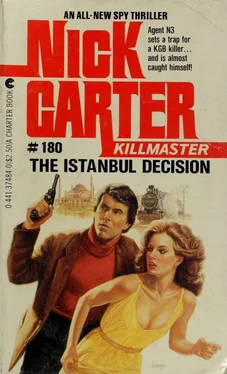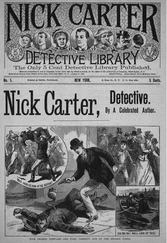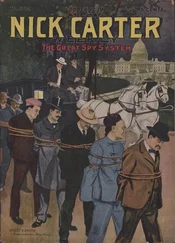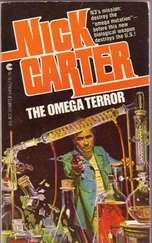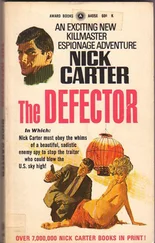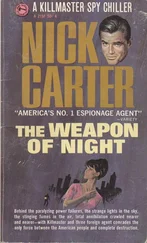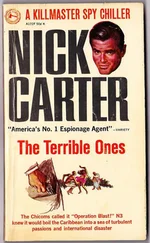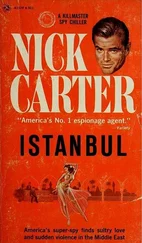He swung to the right and pulled back around the edge of the mountain, not wanting to be seen. This was going to take some strategy. He pulled up on the collective pitch and immediately gained altitude, although he realized there was a limit as to how high he could go. The air here was colder and drier than it had been the night before, which meant it wouldn't work as well in the rotors. Also, he was going to have to consume more fuel to go the same distance.
He flew over a low peak and descended into the valley on the other side, then found the track again and followed it for another two miles. By this time he figured he'd gained fifteen minutes on the train and began to circle, searching the mountain for a particular type of snow formation, one that bulged conspicuously at the bottom of its shelf.
He found what he was looking for hanging well above the track, and he made a pass at it, coming in very close, the sharp chop-chop of the rotor blades reverberating within the narrow cut of the valley.
A clot of coal smoke appeared around the curve below.
Carter made a second pass, the sweat beginning to bead on his forehead as he cranked the throttle full forward. Again the tremendous din of the helicopter engine and rotors hammering at the snow shelf.
The train steamed into view at the bottom of the long grade as Carter maneuvered the helicopter up and around in a gut-wrenching tight curve, and the snow began to slide off the side of the mountain, slowly at first, then faster and faster, covering the tracks.
The train was already slowing down as Carter lifted the stick and disappeared over the summit. He flew down into the preceding valley, found a convenient flat spot, and landed.
In the nose he found a heavy parka and a medical kit. He stripped off his shirt and looked at his wound. The doctor had done a pretty good job. The stitches looked as though they'd hold, except liquid had begun to form around the ends of the black thread, a bad sign. Fortunately it had gotten so cold during the course of the night that it was too numb to hurt much.
He rebandaged the wound, then put his shirt back on. He pulled on the parka and checked Wilhelmina. There were only nine cartridges left in the Luger. He stuffed it into one of the coat's big side pockets and climbed out into the snow. The sun was just coming over the horizon.
* * *
Carter trotted up the tracks. Ahead, a cloud of vapor billowed from around the curve, and the air was full of the hiss of escaping steam. He ducked behind a series of boulders alongside the track and proceeded from one to the next until he was able to see the rear of the train.
Two of Kobelev's guards stood on the small railed platform at the end of the last car, each with a light machine gun slung over his shoulder. They were dressed in furs and leather like two Sherpa mountain guides and were laughing. The words were garbled, but the tone was unmistakable. Obviously, they'd come prepared for the weather.
Carter was going to have to take them both out, but in such a way that neither of them fired a shot. One burst from those machine guns and the whole train would come running. The last thing he needed at this point was a shoot-out.
He moved up behind another boulder until he was within fifty yards, the furthest he could be and still be dead certain of his marksmanship. Then he leaned forward, screwed the silencer on the end of the barrel, steadied his hand on the rock, and waited.
The two men continued to talk and laugh. One seemed to be telling the other a story. Occasionally, disjointed shouts floated to Carter from the front of the train, and every so often he had to put his gun down and blow on his fingers to keep them from freezing.
Finally the one guard reached the punchline, and the other man laughed heartily while the first turned his head out of the wind to light a cigarette.
This was the moment Carter had been waiting for. He aimed at the laughing man, gently squeezed, and put the bullet into the back of his throat. The guard's head slammed against the back of the car, bounced forward, and he ended up folded over the low railing.
The second man looked up, the cigarette falling from his mouth. In his astonishment the whites of his eyes were visible even at fifty yards. Carter put his second shot in the man's neck behind his left ear. The bullet blew out part of the man's head, spraying blood for several feet. He fell onto the first man, then slumped to the floor, his body twitching.
Carter ran to the train, relieved both men of their machine guns, flinging one as far as he could into the valley below and shouldering the other, then he entered the car. It was empty. These were servants' quarters, tight little berths with no more than a pull-down bed and a window, but none of the beds was pulled down, and each of the narrow sliding doors stood open. There was no sign anyone had been in here recently.
He went on to the next car — a sleeping car with old-fashioned upholstered seats. It was empty as well. A small heater at the end of the aisle was blowing out warm air. He stooped to warm his hands, listening. There wasn't a sound; the train seemed deserted. He wondered if the passengers hadn't gotten off somewhere along the way.
He went on to the next car. More berths, although these were for the paying customers, bigger than those earlier and better appointed, with tasseled curtains and small porcelain basins for washing along one wall. Carter eased up the passageway, looking into each compartment with the machine gun at the ready, no longer sure what to expect.
"Nick?" someone whispered behind him. He spun around. Roberta, her hair disheveled, her eyes brimming with relief, ran to him and buried her face in his good shoulder.
He let her cry for a moment, then pulled away. "Get yourself together," he told her.
"I could have taken him," she said with sudden force. "But my gun jammed.
"They kicked all the passengers and crew off in Budapest. Not that any of them were too sorry to leave. But Tatiana is back!"
"I saw her getting on the train at Györ. Where's Cynthia?"
"Up front. Second car back from the engine."
"She's still alive?"
Roberta nodded. "I was just so relieved to see you. When they stopped because of the avalanche, I thought I'd die here. And then it occurred to me that it might be you. I didn't believe it, but thank God I was right. What the hell happened to your arm?"
"Little problem in Györ. Our friend Kobelev is always thinking. He figured I might remember his grandmother, so he laid a trap for me. Damn near worked."
She unzipped the parka and unbuttoned his shirt. "Oh, Nick!" she exclaimed when she saw it. "You need help."
"Later."
Her eyes danced away from his, out across the car, the lids batting back tears. "I made a mistake, Nick. I'm sorry. I guess because you 're a man you get to be the big hero. At any rate, when I got here I realized there wasn't much I could do, so I lay low. Last night when everyone was asleep, I thought I'd take a chance. I crept into the salon car up front and found Kobelev sleeping, unguarded for the moment. I had the drop on him, but then my damn gun jammed. I just made it out of there."
"You were lucky you weren't captured, too."
"You know something, Carter?" she asked indignantly, her shame turning to anger at last. "Throughout our entire association you have given me absolutely no credit whatsoever. When you first met me, you mistook me for a whore, then you shuffled me down to the train station to wait like a little girl while you went to intercept Kobelev at his grandmother's. Now you tell me you don't think I'm capable of a simple operation of the kind I've been trained to do."
"All right," he said, trying to calm her. "I apologize, too. I made a mistake in Austria, and I should have taken you with me in Györ. I could have used you. So now we're even. Let's bury the hatchet. We don't have time to squabble among ourselves."
Читать дальше
